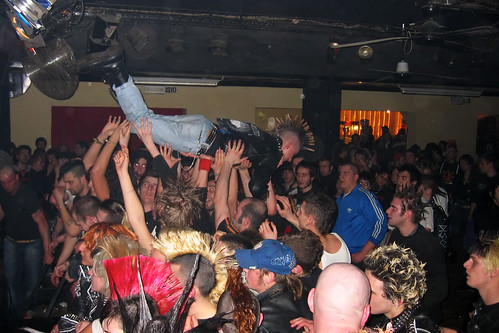I am working on the construction of a new online community, that will be called Edgeryders. This is still a relatively new activity, that deploys a knowledge not entirely coded down yet. There is no instruction manual that, when adhered to, guarantees good results: some things work but not every time, others work more or less every time but we don’t know why.
It is not the first time I do this, and I am discovering that, even in such a wonderfully complex and unpredictable field, one can learn from experience. A lot. Some Edgeryders stuff we imported from the Kublai experience, like logo crowdsourcing and recruiting staff from the fledgling community. Other design decisions are inspired from projects of people I admire, projects like Evoke or CriticalCity Upload; and many are inspired by mistakes, both my own and other people’s.
It is a strange experience, both exhalting and humiliating. You are the crowdsorcerer, the expert, the person that can evoke order and meaning from the Great Net’s social magma. You try: you say your incantations, wave your magic wand and… something happens. Or not. Sometimes everything works just fine, and it’s hard to resist the temptation of claiming credit for it; other times everything you do backfires or fizzles out, and you can’t figure out what you are doing wrong to save your life. Maybe there is no mistake – and no credit to claim when things go well. Social dynamics is not deterministic, and even our best efforts can not guarantee good results in every case.
As far as I can see, the skill I am trying to develop – let’s call it crowdsorcery – requires:
- thinking in probability (with high variance) rather than deterministically. An effective action is not the one that is sure to recruit ten good-level contributors, but the one that reaches out to one thousand random strangers. Nine hundred will ignore you, ninety will contribute really lame stuff, nine will give you good-level contibutions and one will have a stroke of genius that will turn the project on its head and influence the remaining ninety-nine (the nine hundred are probably a lost cause in every scenario). The trick is that no one, not even him- or herself, knows in advance who that random genius is: you just need to move in that general direction, and hope he or she will find you.
- monitoring and reacting rather than planning and controlling (adaptive stance). It is cheaper and more effective: if a community displays a natural tropism, it makes more sense to encourage it and trying to figure out how to use it for your purposes than trying to fight it. In the online world, monitoring is practically free (even “deep monitoring” à la Dragon Trainer), so don’t be stingy with web analytics.
- build a redundant theoretical arsenal instead of going pragmatic (“I do this because it works”). Theory asks interesting questions, and I find that trying to read your own work in the light of theory helps crowdsorcerers and -sorceresses to build themselves better tools and encourages their awareness of what they do. I am thinking a lot along a complexity science approach and using a little run-of-the-mill network math. For now.
These general principles translate into design choices. I have decided to devote a series of posts to the choices my team and I are making in the building of Edgeryders. You can find them here (for now, only the first one is online). If you find errors or have suggestions, we are listening.

